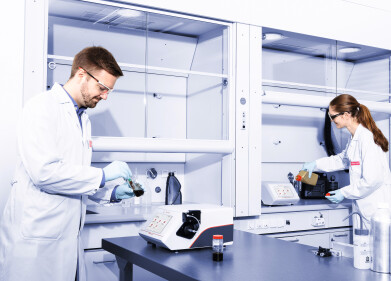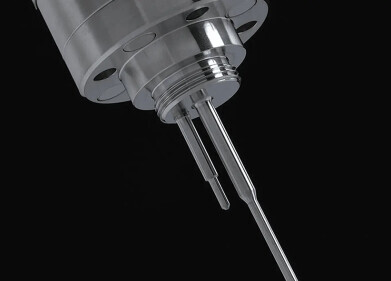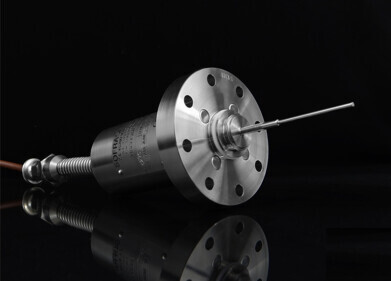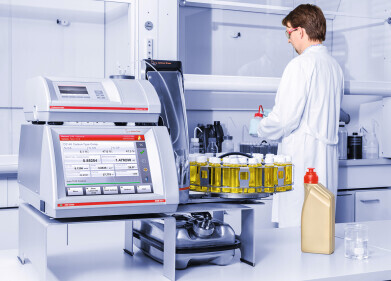Viscometer
Mini-Rotary Viscometer shows the importance of pumpability measurements
Aug 03 2021
With the advent of fuel injection and electronic ignition in modern automotive engines, and the development of engine oils of lower viscosity at low temperatures, the failure to start these engines at low environmental temperatures are a problem of the past. More importantly, the ability to pump the engine oil in an operating engine has become more demanding and can lead to catastrophic engine damage due to air-binding failure, propagated with the use of a more highly paraffinic base oil content than past solvent-refined base oils, as well as the use of bio-lubes and biofuels with their inherently higher low-temperature gelation properties. Such base oils are highly sensitive to the proper level of additives and require more precise treatment of pour-point depressants to avoid air-binding.
Two tests have become the measures of quality in the pumpability response of automotive engine oil at low operating temperatures, the Mini-Rotary Viscometer (MRV) and the Scanning Brookfield Technique with Gelation Index measurement. Both tests have long-established ASTM Methods and are included in several international specifications such as SAE J300, ILSAC/API GF series, ACEA and IFC, accompanied by appropriate limits.
Originally developed in 1979, the D3829 MRV method measures the borderline pumping temperature -- the lowest temperature at which an engine oil can continuously flow to the oil pump inlet of an engine. Following significant engine failures during the winter of 1980-81 due to gel formations in oils, the MRV method was modified with a temperature profile (TP-1) and re-established as D4684 in 1987.
The (10) test position King MRV (D4684, Procedure A), manufactured by Tannas Co and King Refrigeration Inc., innovated the MRV test by incorporating self-contained, solid block ‘direct refrigeration’ technology for both heating and cooling to evenly distribute constant temperature to all (10) Test Cells. This provides cell-to-cell temperature consistency of ±0.1C down to -40°C and eliminates external pre-heating and cold-temperature circulating baths.
The King MRV features microprocessor temperature control to store all MRV testing profiles, an optical encoder and software for digital detection of viscosity and yield stress, removable test cells for easier test setup and cleaning, carbon fiber rotor shafts, and a special design feature for the delivery of pre-cooled, dry air to each Rotor/Stator -- removing the need for cell caps required by other manufacturers.
The small footprint of the King MRV along with its optional (5 to 10) sample capacity makes it an ideal choice for labs with both small and large testing needs.
Digital Edition
PIN 25.5 Oct/Nov 2024
November 2024
Analytical Instrumentation - Picturing Viscosity – How Can a Viscometer or a Rheometer Benefit You? - Sustainable Grease Formulations: Evaluating Key Performance Parameters and Testing Method...
View all digital editions
Events
Jan 20 2025 San Diego, CA, USA
Jan 22 2025 Tokyo, Japan
Jan 25 2025 San Diego, CA, USA
SPE Hydraulic Fracturing Technology Conference and Exhibition
Feb 04 2025 The Woodlands, TX, USA
Feb 05 2025 Guangzhou, China



















